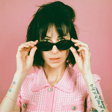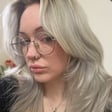
Hayley Lynn
Organically gripping and raw, Hayley Lynn’s sultry timbres extend through the various depths of her vocal range as she is soft-spoken but packs a punch when her lyrical motifs drop.
Lynn's first body of work “Bring on the Flames,” co-created with producer Kyle Devine, was performed to several sold out shows across the Northwest as well as placement in the Netflix Original shows “The Pier” and “Money Heist.” Since then, Lynn’s music has been placed on ABC, the 700 Club, and Big Ten Network, expanding Lynn’s reach to international audiences. In addition to being a hometown favorite, Lynn is back on the road with breakthrough performances at festivals and venues such as Northwest Folklife, Oregon Country Fair, Winningstad Theater, Bloodworks Live Studio, Mississippi Studios, The Old Church Concert Hall, and touring through the U.S and Canada.
Recently, Lynn released her first solo debut album ‘Horizon’. Many of the songs came as a means to heal. The pandemic was especially hard on artists and Lynn’s method of survival was to dive deep into the layers of her life, the feelings that arose and the distractions she used to cope. The result is a velvet voice wrapped in an ocean of sound that is cathartic to lose ourselves in.
https://www.hayleylynnmusic.com/
https://open.spotify.com/artist/3ustZQSFU19uRveWdTUeAd
https://music.apple.com/us/artist/hayley-lynn/1374681637
https://www.tiktok.com/@hayleylynnmusic?lang=en
https://www.instagram.com/hayley_lynn_music/?hl=en
https://www.youtube.com/channel/UCqIuebsBOUfG6Kk-yeAtwIA



















